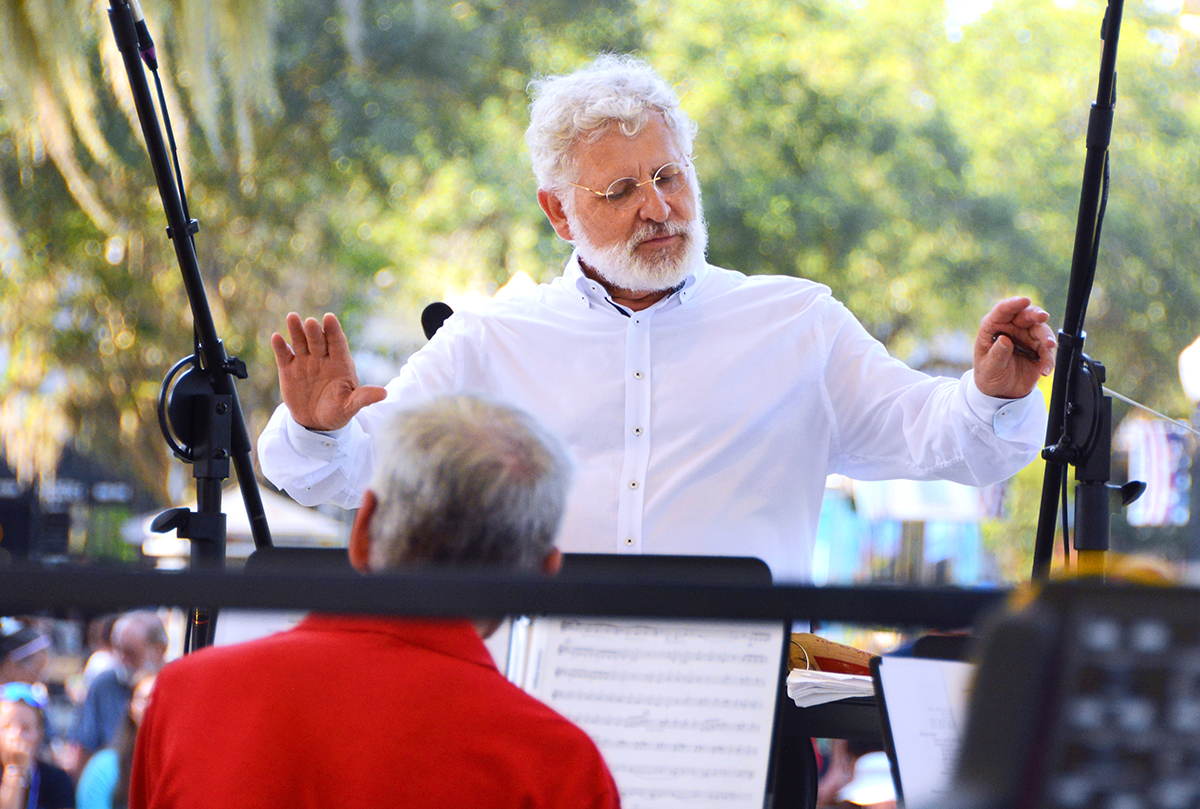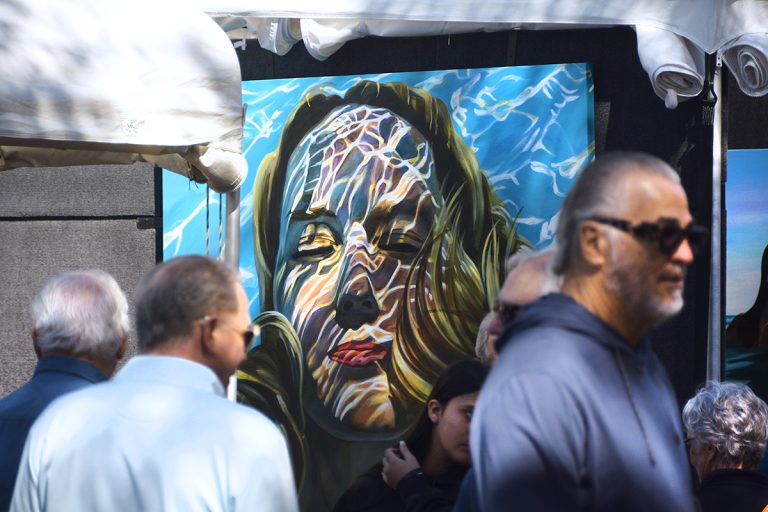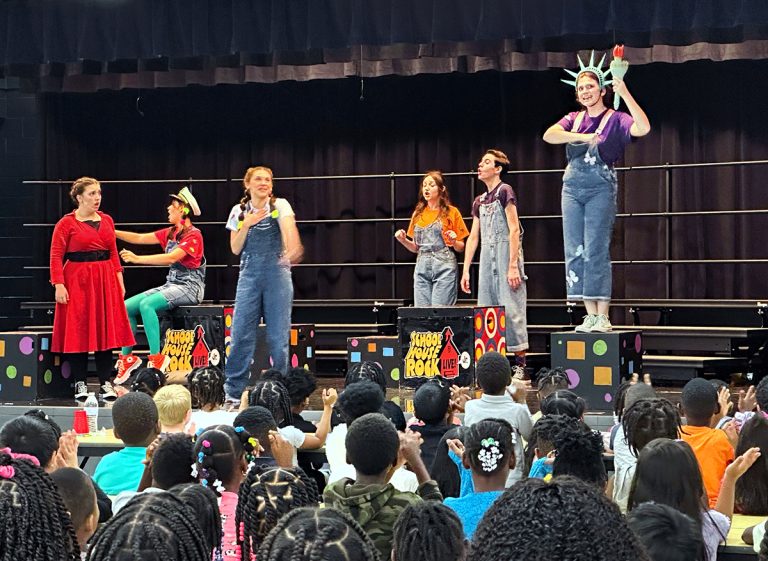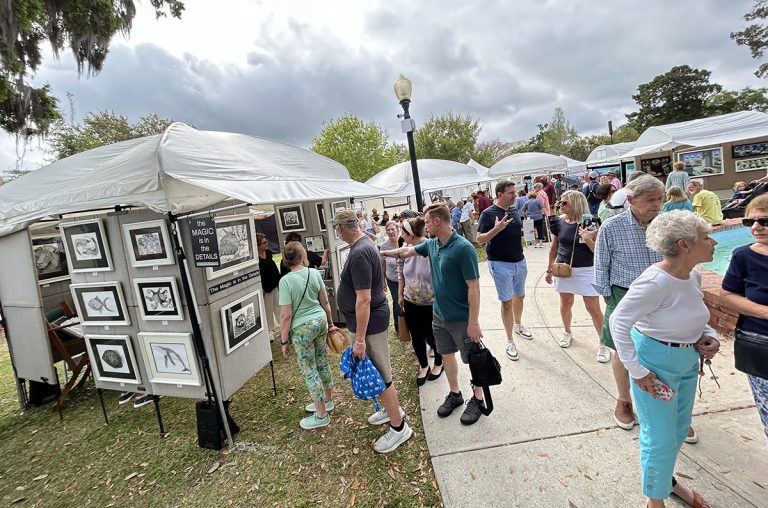Story by contributing writer, Griffin Warlow
Music is defined by instrumental and vocal sound, but for Bach Festival Society Artistic Director and Conductor Dr. John V. Sinclair, music defines a career.
Based at Rollins College since 1935, Bach Festival Society of Winter Park is celebrating its 89th season, and its 33rd under Sinclair’s leadership. He is also John M. Tiedtke Professor of Music at Rollins College and conducts approximately 150 performances each year, including the Walt Disney World Candlelight Processional at EPCOT.
Awards received during his Rollins tenure include the Sidney Algernon Sullivan Citizen Award, Hugh and Jeannette McKean Faculty Grant, William E. Barden Distinguished Teaching Award, Cornell Distinguished Service Award, and the McKean Award for Outstanding Teaching. And he has traveled the globe for appearances as a conductor and lecturer.
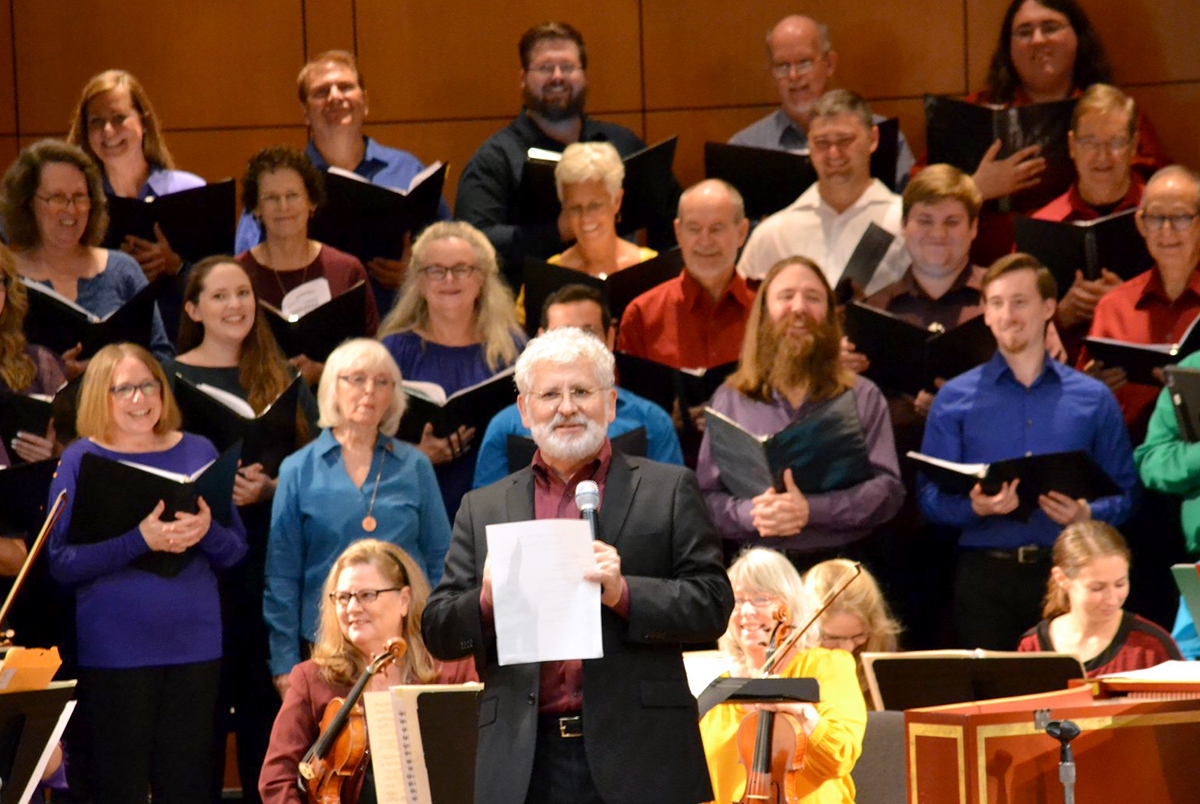
Originally from Independence, Missouri, a suburb of Kansas City, Sinclair studied at William Jewell College before earning master’s and doctoral degrees from the University of Missouri-Kansas City’s Conservatory of Music.
“I was in the Midwest when the job opened at Rollins,” he told the32789. “The person who talked to me, who convinced me to come, was Rollins’ 12th president, Thaddeus Seymour. He called me and said, ‘I know you probably have some other offers, but Rollins is a place where one person can make a difference and we’d like to have you here, and I know they want you here for the festival, too.’”
Here, Sinclair discusses his career, his tenure with the Bach Festival and the nutritional value of music.
How do you keep the festival new and fresh every year? It’s always a guessing game, and you’re trying to do what people want. I try to look at the greatest choral masterworks and I choose from those. And then, every year I introduce one or two new pieces. Like this fall, we’re doing a classical piece by Paul McCartney – not what you necessarily expect from the group. I try to pick repertoire and I try to do music that is the best of the genre, but I also try to do music that is new, that’s relevant, that could become great masterworks in the future.
When were you first introduced to music? Well, my mother was a pianist. I remember always singing and her playing for me. And I remember playing trumpet in elementary school, but I had been singing my whole life. My background is as a trumpet player and a singer, which I don’t do much anymore. I just do a lot of conducting. But having that background really informed my craft. Knowing what it’s like to sit in an orchestra and knowing what it’s like to sit in the choir has really informed my work.
What kind of music do you most enjoy, and who are some of your favorite composers? The answer I always give is, the music I like best is what I’m working on at that time. But I do like lots of music. I love classical music and jazz, too. I played in a rock band through college to make money, so I like all styles, but classical is my love. I love contemporary composers, but I’m a big fan of Bach and Mendelssohn, and Beethoven. Those are probably my favorites.
What do you like most about classical music? You know, when you listen to pop music, it’s fun. It’s like a candy bar. And then other kinds of music are a little more like good carbs. But classical music is protein. There’s a reason why we’re still listening to Bach, who died in 1750. It’s because it’s great music. It’s well built. Great music stands the test of time.
What do you think the future holds for the Bach Festival, and for classical music? Classical music people in my position need to make it relevant. And they need to pick music that speaks to people because great music speaks, not only to the intellect, but to the soul. It’s my job to pick music that speaks to the spirit and the intellect at the same time. I think the future of classical music depends a lot upon cheerleaders like myself, doing their best job of introducing people. I think the Bach Festival is in a great place. We’re well positioned for the future. We are very forward thinking. We are wonderfully managed. Our board is hugely involved. Now the long term is hard to know, but we’re approaching our 89th season, so I think we have a long future ahead. People ask me the question, how many more years for me? And the answer is, I’m not going to be here for a hundred years, but I’m here for a while. Conductors tend to work for a long time, and I think that conductors tend to live pretty long because of all the cardiovascular they get.
Do you feel you still improve with every new performance? I learn something every year, and I think I get better every year. At least I hope that’s true. It’s a personal perception, but experience matters, and it’s different than in sports. If you were 40 years old, your career in basketball should probably be over. But in music, the experience and the knowledge you accumulate every year is so important and connected. I feel like it is an art form that I can still get better at.
Does that motivate you to continue to conduct? Yeah, I think so. I was telling my conducting students, if you ever conduct a perfect performance, quit, because you won’t have that happen again. It’s an art form, and art is not easily defined or easily controlled. It’s a little bit like how you can watch a basketball game on TV, and then you watch it in person and it’s completely different. You see it in person, and it’s got a whole different nuanced energy to it. It pushes you to continue. I’ve been making music most of my life. Music always has to be a part of my life somewhere. It’s food that fuels my brain and fuels my spirit.
Back Festival Society begins its 89th season on Thursday, Oct. 5. Tickets, subscription packages and event information are available at bachfestivalflorida.org.
